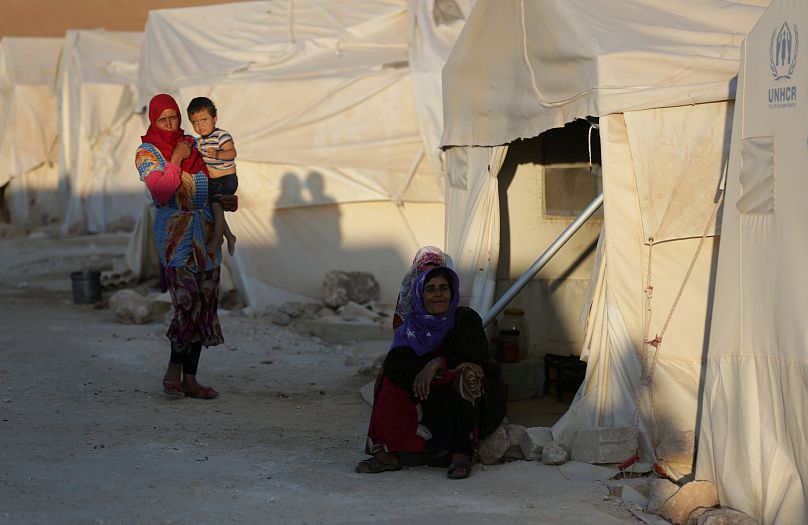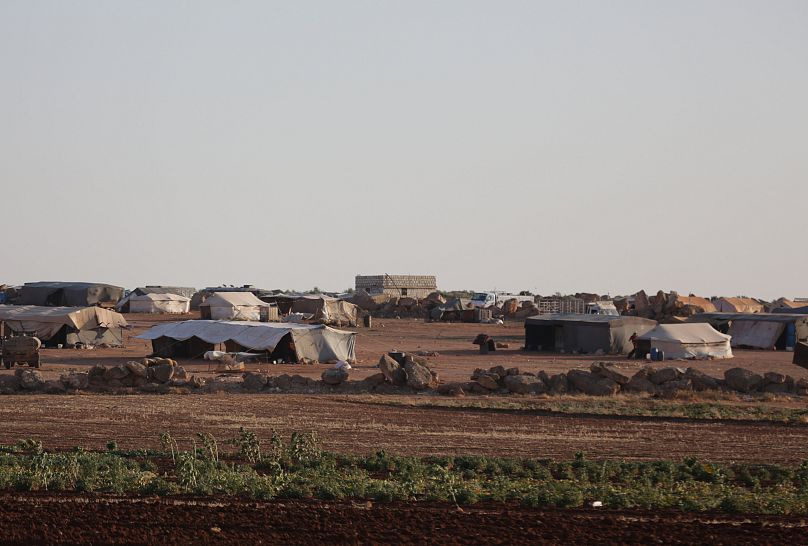Why is the fight for Idlib so significant, what are the likely outcomes, and could it really be the last battle of the Syrian conflict? Euronews spoke to experts to find out.
Anticipation is mounting over Syria’s looming assault on the province of Idlib — the war-torn country’s last rebel stronghold.
Russian warplanes reportedly bombed Idlib on Tuesday, as Syrian President Bashar Al-Assad gathered his troops ready to storm the region.
But why is the fight for Idlib so significant, what are the likely outcomes, and could it really be the last battle of Syria’s seven-year war? Euronews spoke to experts to find out.
Significance
Idlib is the last major stronghold of rebels who have sought to overthrow Assad. It is controlled by a number of rival factions, including Islamist group Hayat Tahrir al-Sham (HTS).
“You have some areas where they exist under Turkish supervision elsewhere, but they’re not really fighting the government there. So the only area where you still have a live insurgency that’s actually threatening the regime is Idlib,” Aron Lund, a fellow at The Century Foundation think tank who specialises in Syrian politics, told Euronews.
Lina Khatib, head of the Middle East and North Africa Programme at Chatham House, said taking over the last rebel-held bastion “would mean a military victory for the regime over the opposition.”
Outcomes
Humanitarian groups and politicians have joined a chorus of concern that an attack on the region would result in a “human tragedy”.
"The Russians and Iranians would be making a grave humanitarian mistake to take part in this… Hundreds of thousands of people could be killed,” US President Donald Trump tweeted.
The United Nations has warned that an attack on Idlib — home to an estimated three million people, more than half of whom were displaced by previous battles — could spark a humanitarian catastrophe on a scale not yet seen in the conflict.
Khatib said the most likely outcomes of the battle were “a large-scale humanitarian catastrophe as well as the dissolving of some of the rebel groups in the governorate.”
Last battle?
The impending assault has been dubbed by some as the final major battle of the Syrian conflict.
Khatib argued that while the battle may give the regime and its allies a military victory over the rebels, “it will not be the last battle of Syria’s war.”
“It will be the beginning of a new phase in the conflict in which rebel groups transform into insurgents and pro-regime militias refuse to drop their arms,” she told Euronews.
Lund agreed that while the capture of Idlib would be “a step towards consolidating a government victory”, it would bring a new chapter in the conflict, rather than its end.
“You still have Turkish troops elsewhere in the northwest, and you have US troops in the southeast on the Iraqi border, and you have US troops as well stationed among these Kurdish groups in the northeast, so you still have a fairly large chunk of Syrian territory that’s still out of sight of the government’s control, including oil and gas and agricultural resources,” he said.
“Surely you’ll have fighting and bombings still, but not to the same extent perhaps. It will be done more politically, more diplomatically, with economic sanctions and pressure of different kinds, like subversion and underground military action but not the large-scale open warfare that we’ve had.”
“It won’t be the end of fighting in Syria but it will be the end of what began in 2011 in some sense,” he added.
Uncertainty
However, Lund said the implications of the battle depended largely on what the Syrian regime and its allied forces were trying to achieve.
Despite Assad being “vastly more powerful” than rebel groups in the area, he argued that conflicting allegiances and interests could play a significant role in the scope of the battle.
“There are some Turkish troops entangled in the area, and Assad doesn’t want to tangle with the Turkish army. And the Turks are allied with the rebels, but they’re also in contact with the Russians. And the Russians are allied with Assad. So it’s complicated,” he explained.
“It seems likely that there will be some sort of an attack, but it’s also very possible, I think, that Turkish, Russian and to some extent Iranian discussions have led to an understanding about the limits of that attack or the way that it should be executed.
“Should it be all of the area or just certain parts on the fringes? Should we try to have a political resolution for the other parts or just postpone that and see what happens next? Those types of discussions will matter a lot,” he said.













